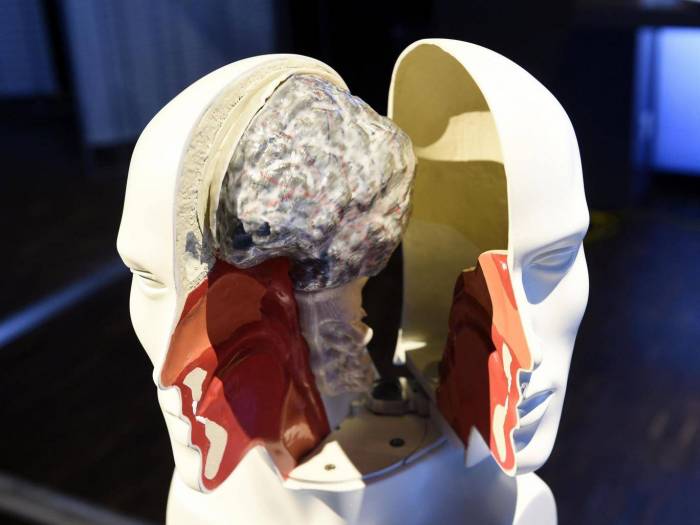Previous work has demonstrated that children’s brains can be altered if they are raised in environments that lack adequate education, nutrition and access to health care.
However, less is known about the impact these markers of lower socioeconomic status can have on the brains of adults.
“We know that socioeconomic status influences the structure of the brain in childhood and older age, but there’s been a gap in the research,” said Dr Gagan Wig, a neuroscientist at the University of Texas at Dallas.
“We wanted to see if there were relationships between socioeconomic status and the brain across a wider range of adulthood.”
In a study published in the journal Proceedings of the National Academy of Sciences of the United States of America, Dr Wig and his colleagues applied brain imaging technology to around 300 subjects between the ages of 20 and 90.
Their socioeconomic status was measured using a combination of education and the “prestige” of each individual’s job.
The researchers’ results suggested a potential link between socioeconomic status and changes to brain structure and function.
In middle-aged adults they noted those with higher overall “status” had brain networks that were more efficiently organised and their cortical grey matter was thicker.
The thinner cortex seen in those from lower socioeconomic backgrounds, on the other hand, could be cause for concern as this feature is known to be associated with cognitive impairment later in life, including memory loss and dementia.
“These data provide a snapshot in time for each participant,” said the study’s lead author Dr Micaela Chan. ”Following individuals through their lifespan would provide more information about brain changes and their relationship to life events and status.”
Dr Wig added: “What we have found in middle-aged adults is a correlation between socioeconomic status and brain function and anatomy.
“What makes these results more striking is that the individuals we studied were predominantly above the poverty line. This provides evidence that socioeconomic status-brain relationships are not limited to individuals at the extreme ends of socioeconomic status, but are present across a broader socioeconomic status range.”
Professor Derek Hill, a medical imaging specialist at University College London who was not involved in the study, told The Independent the impact of socioeconomic status on brain function and structure is “a fascinating area of research”.
However, he noted the study by Dr Wig and his colleagues had its limitations.
“The results suggest possible relationships between socioeconomic status and brain function, but must be considered very preliminary,” said Prof Hill.
“The study is too small to provide strong evidence of a link and more research would help clarify whether the findings are real, or random.”
Dr Rebecca Dewey, a research fellow in neuroimaging at the University of Nottingham noted that measures such as cortical thickness are so strongly tied with education attainment that making conclusions about broader socioeconomic status is “not very helpful”.
While he noted that much is still not understood about the links suggested by this study, Dr Wig said these results suggest this area is worth further investigation.
“Because differences in socioeconomic status can be associated with differences in many factors, including those related to diet and health behaviours, access to health care, and levels of stress, it’s not yet clear which of these, if any, is the source of the observed relationships,” he added.
“The bottom line is, socioeconomic status might matter for brain health, even in middle age, and we will need to investigate the relationship further.”
The Independent
More about: science
















































